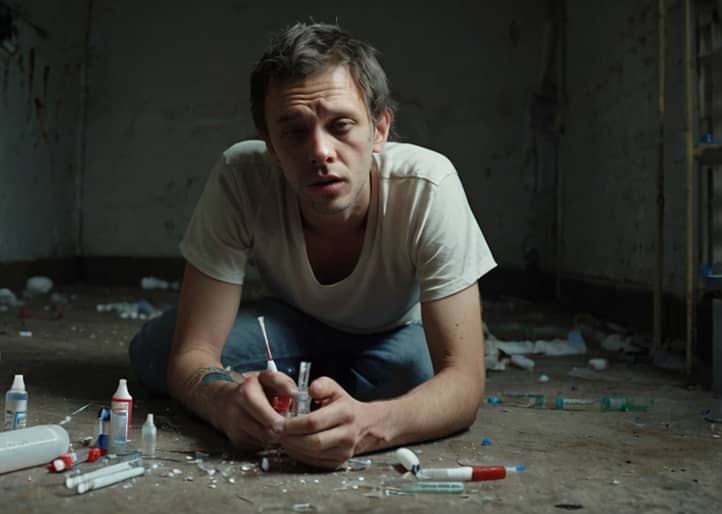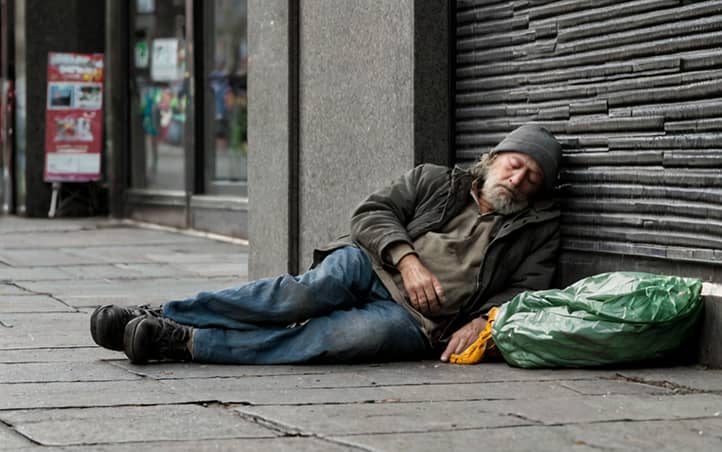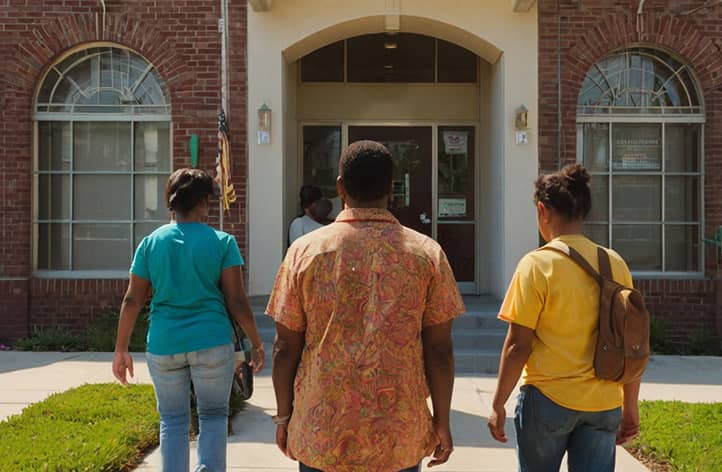Deviant behavior represents a significant deviation from the norms and values accepted in society. It can include actions that violate legal or ethical standards, as well as traditions and customs. The problem of deviant behavior is complex and multifaceted, affecting various areas of social life.
The importance of studying deviant behavior and seeking ways to prevent and overcome it is driven by several reasons. First, deviant behavior can harm the individual, their loved ones, and society as a whole. Second, it disrupts the normal functioning of social institutions and hinders societal development. Third, deviant behavior is often associated with crime, alcoholism, drug addiction, and other serious issues that require immediate intervention and resolution.
Deviant behavior can manifest in various forms and with differing levels of severity, ranging from relatively harmless rule violations to dangerous antisocial actions. However, even seemingly minor deviations can escalate into more serious problems over time, making it important to focus on preventing deviant behavior at early stages.

Types of Deviant Behavior
Deviant behavior can take various forms and be expressed through a wide range of actions and behavior patterns. It is important to understand the diversity of its types since each requires a specific approach in terms of prevention and correction.
Some forms of deviant behavior are primarily individual in nature and primarily affect the person themselves. These include addictions, suicidal behavior, and eating disorders. Other forms have a distinctly antisocial orientation and pose a danger to others—such as crime, extremism, aggression, and violence. There are also borderline cases where deviation affects both the individual and society.
Crime
Crime is the most common and dangerous form of deviant behavior. It includes various offenses, from petty theft to serious crimes against individuals. Crime harms society, violates the rights and freedoms of citizens, and creates an atmosphere of fear and distrust.
According to the United Nations Office, about 6.3 million cases of violent crimes, including murder, rape, and serious bodily harm, are recorded worldwide each year. In addition, the number of cybercrimes related to fraud and the theft of personal data is growing.
Alcoholism and Drug Addiction
Substance abuse, particularly alcoholism and drug addiction, is a serious problem in modern society. Alcoholism and drug addiction lead to personality degradation, the destruction of families, loss of employment, and other negative consequences. Furthermore, these behaviors are often accompanied by crime and violence.
According to estimates by the World Health Organization, harmful alcohol use causes about 3 million deaths worldwide each year. Regarding drug addiction, about 275 million people used drugs at least once in 2019 alone.
Suicidal Behavior
Suicidal behavior, which includes suicidal thoughts, suicide attempts, and completed suicides, is one of the leading causes of death worldwide. It reflects a deep internal crisis of the individual and requires immediate intervention and professional help.
According to WHO statistics, around 800,000 people die by suicide each year, which amounts to one death every 40 seconds. Suicidal behavior is most common among young people and the elderly, though it affects all segments of the population.
Aggressive Behavior
Aggressive behavior, expressed in the form of physical or psychological violence, also falls under deviant behavior. It can be directed both at others and at oneself. Aggression is often accompanied by crime and other forms of deviant behavior.
Studies show that about 25% of people experience physical violence from a partner during their lifetime, while psychological abuse is even more widespread. Aggressive behavior is also common in schools and workplaces.
Other Forms of Deviant Behavior
Other forms of deviant behavior include phenomena such as prostitution, vagrancy, gambling, extremism, fanaticism, and many others. Each of these forms has its own characteristics and requires an individualized approach to solving the problem.
For example, prostitution not only violates legal norms but also contributes to the spread of diseases and sexual exploitation. Vagrancy and begging are often associated with poverty and social isolation. Extremism and fanaticism pose a threat to public safety and can provoke conflicts on national or religious grounds.

Causes of Deviant Behavior
Attempts to explain the causes of deviant behavior have been ongoing for a long time, but there is still no single theory that fully addresses this problem. Deviation is a complex and multifactorial phenomenon, arising from a combination of biological, psychological, and social determinants that interact with each other.
Modern research increasingly points to the interaction between a person’s innate individual characteristics and environmental influences as the main factor provoking the development of deviations. Genetic predisposition, brain function, and neurotransmitter systems, combined with adverse upbringing and socialization conditions, can trigger the development of deviant behavior.
The causes of deviant behavior are also closely linked to the periods of personality formation and development. The most vulnerable stages are childhood, adolescence, and youth, when the process of forming personal identity and value systems is actively taking place.
Biological Factors
Biological factors include genetic characteristics, congenital developmental abnormalities, nervous system dysfunctions, and hormonal disorders. Some studies point to a link between certain genes and a tendency towards aggressive or antisocial behavior.
For example, scientists have found that the MAOA gene, which is responsible for producing the enzyme monoamine oxidase A, can affect levels of serotonin and other neurotransmitters that regulate aggression. People with low activity of this gene are more prone to deviant behavior, especially when combined with adverse environmental factors.
There is also evidence of a connection between congenital brain defects, such as damage to the frontal lobes, and a tendency towards impulsive and antisocial behavior.
Psychological Factors
Psychological factors include personality traits, cognitive impairments, emotional disorders, low self-esteem, and difficulties in communication and adaptation. Psychological trauma experienced in childhood or throughout life can also contribute to the development of deviant behavior.
People with certain personality traits, such as impulsivity, aggressiveness, egocentrism, and low self-control, are more prone to deviant behavior. They often struggle to follow social norms and rules.
Moreover, various mental disorders can provoke deviant behavior. For example, a person with depression may resort to alcohol or drugs to cope with negative emotions. In personality disorders such as dissocial personality disorder or borderline personality disorder, the ability to form close relationships and follow social norms is impaired.
Anxiety disorders, post-traumatic stress disorder, and autism spectrum disorders can also lead to deviant behavior.
Social Factors
Social factors are among the most significant in the development of deviant behavior. These include a dysfunctional family environment, low levels of education, unemployment, poverty, negative peer influence, and cultural and ethnic characteristics. Additionally, social stereotypes, media violence, and the lack of effective deviant behavior prevention programs play important roles.
Family problems such as parental divorce, child abuse, and neglect often cause deviant behavior in adolescence and adulthood. Children who do not receive proper attention and care are more likely to engage in antisocial behavior.
Low educational attainment and poverty also increase the risk of involvement in crime, drug addiction, and other forms of deviance. People with limited opportunities and prospects are more likely to resort to illegal actions to meet their needs.
Negative peer influence, whether from a criminal subculture or a group of antisocial peers, promotes the adoption and reinforcement of deviant behavior patterns. This is especially true for teenagers, for whom peer opinion becomes very important.
The role of the media and the internet in shaping deviant behavior should not be underestimated. The promotion of violence, the cult of power, and the spread of extremist ideas can all have a destructive effect on people’s psyches.

Consequences of Deviant Behavior
Deviant behavior is fraught with a wide range of negative consequences that affect almost all areas of life for both individuals and society as a whole. The destructive effects of deviations can be seen in an individual’s physical and mental health, personal development, and social and professional activities.
However, beyond the individual costs and losses, deviant behavior causes enormous damage to society—from direct financial costs to the erosion of moral values and social instability. Crime, legal nihilism, violence, and social conflicts are all generated by various forms of deviation.
Impact on the Individual
For the deviant individual, the consequences can be wide-ranging: deteriorating physical and mental health, loss of social status, broken relationships with loved ones, legal liability, and even imprisonment. Additionally, deviant behavior often leads to personality degradation and the loss of life goals and values.
Drug addiction and alcoholism severely harm the body, causing damage to internal organs, mental disorders, and weakened immunity. Suicidal behavior, in the worst cases, leads to death. Aggressive behavior and violence are fraught with injuries and disability.
In addition to physical consequences, deviant behavior leads to the moral decay of the personality, the loss of self-respect, and the respect of others. Deviants often become social outcasts, lose their jobs, friends, and family.
Criminal forms of deviation, such as theft, fraud, and drug trafficking, carry legal consequences, including imprisonment. This leaves a negative mark on the person’s life, drastically reducing their prospects.
Impact on Family and Loved Ones
Deviant behavior by one family member inevitably affects the others. It can lead to the breakdown of family relationships, conflicts, emotional trauma, especially for children. Moreover, the family often suffers financial and reputational losses due to the deviant’s behavior.
Parental alcoholism or drug addiction creates a highly unfavorable environment for a child’s development, provoking abuse and neglect of their interests. Aggressive behavior by one family member generates fear, insecurity, and depression among the others.
Criminal activity also severely impacts family well-being. In addition to legal issues and possible imprisonment, it leads to financial difficulties, property confiscation, loss of reputation, and social status.
Furthermore, deviant parental behavior is often passed on to children, who adopt these patterns of behavior and become deviants themselves. As a result, the normal lives of multiple generations are disrupted.
Influence on Society
The consequences of deviant behavior for society are also significant. It causes social instability, increases crime rates, and spreads antisocial phenomena such as drug addiction and prostitution. Moreover, deviant behavior requires expenditures for law enforcement agencies, medical and social services, as well as for the restoration of damage caused.
According to experts, in the U.S. alone, the annual damage from crime is estimated to be about $1 trillion, including direct costs (theft, property damage) and indirect costs (spending on police, courts, prisons). In other countries, these figures also reach billions.
Drug addiction and alcoholism cause significant harm to public health and labor productivity. According to the World Health Organization, alcohol abuse alone costs the global economy 1.4% of the world’s GDP annually.
We should not underestimate the social costs of deviant behavior, such as growing social tension, mistrust in society, and conflicts on national and religious grounds. Extremism and fanaticism create an atmosphere of fear and can lead to large-scale clashes and humanitarian disasters.
Deviant behavior also negatively impacts the cultural and moral spheres of society. It erodes traditional values, moral norms, and fosters the spread of cynicism and nihilism, especially among young people. As a result, society gradually degrades, trust between people decreases, and humanistic ideals are lost.
Overall, the consequences of deviant behavior are multifaceted and affect almost all spheres of society. Therefore, combating various forms of deviance should become a priority in state policy.

Prevention of Deviant Behavior
Preventing deviant behavior is a complex task requiring the collaboration of many social institutions and agencies: the family, the education system, healthcare, law enforcement agencies, and public organizations. Only by concentrating all resources can effective prevention of deviance be achieved.
At the same time, it is essential to combine proactive measures with the elimination of causes and conditions that contribute to deviance. The emphasis should be on creating an atmosphere of intolerance towards illegal and antisocial behavior, starting from early childhood education.
Special attention should be paid to identifying individuals from “risk groups” — those whose personal traits and life circumstances increase the likelihood of deviant behavior. Targeted preventive work should be conducted with them by psychologists, social workers, and other specialists.
Work with Families
The family plays a key role in shaping a child’s personality and values. Therefore, it is essential to work with dysfunctional families, providing them with psychological, pedagogical, and social assistance. It is also important to increase parents’ legal literacy and inform them about the consequences of deviant behavior in children.
For this purpose, special family counseling centers can be established, where qualified specialists will help address family problems, teach effective parenting methods, and provide legal and material support. Additionally, the work of social services in identifying dysfunctional families at early stages should be strengthened.
School Programs
Schools should implement special programs for the prevention of deviant behavior. These programs can include communication skills training, teaching emotional self-regulation techniques, conflict resolution, and promoting a healthy lifestyle. It is also important to carry out informational and educational work, explaining the harm of alcohol, drugs, crime, and other forms of deviant behavior.
School psychologists should identify children from “risk groups” and work with them individually. Furthermore, students should be actively involved in preventive activities, creating volunteer teams and organizing events.
The organization of leisure activities for schoolchildren also plays an important role. Engaging them in sports clubs, hobby groups, and creative studios helps foster beneficial hobbies and prevents idle time on the streets.
Public Organizations and Projects
Various public organizations and projects also play an important role in preventing deviant behavior. They can organize recreational activities for children and youth, creative groups, and volunteer work. These measures help foster positive interests and values.
Many non-profit organizations are engaged in the rehabilitation of people with deviant behavior, helping them restore social skills, find employment, and adapt to normal life. Volunteers hold discussions, and workshops, and provide psychological support.
In addition, public movements play a crucial role in raising awareness about deviant behavior, creating intolerance towards crimes in society, and promoting a healthy lifestyle. They initiate various campaigns and media events to draw attention to these issues.
State Policy
At the state level, comprehensive policies aimed at reducing deviant behavior should be implemented. This may include improving legislation, creating effective social assistance programs, and increasing living standards, as well as access to education and healthcare. Furthermore, it is important to strengthen the promotion of a healthy lifestyle and intolerance towards violations of the law.
One of the key directions should be the fight against poverty and unemployment, as these factors are powerful catalysts for deviant behavior. The creation of new jobs, increasing the minimum wage, and providing targeted social assistance will help reduce crime rates and other forms of deviance.
It is also necessary to improve legislation in the areas of combating alcoholism, drug addiction, human trafficking, and extremist activities. Tougher penalties for such offenses can have a deterrent effect.
The development of medical and psychological assistance systems for the population plays an important role. Timely diagnosis and treatment of mental disorders and addictions can prevent many forms of deviant behavior.
Finally, the state should pay special attention to raising legal literacy among citizens, conducting informational campaigns about the dangers of deviance, and fostering intolerance towards illegal actions in society.

Assistance to Deviants
Unfortunately, even with the most effective preventive measures, some people still become involved in various forms of deviant behavior. They need urgent professional help to stop the deviance and successfully reintegrate into society. This process should be comprehensive, covering all areas of their lives.
It is crucial to eliminate the root causes of deviance, often rooted in psychological issues such as internal conflicts, personality disorders, and maladaptive coping strategies.
Along with psychological and psychiatric intervention, special attention should be given to the social rehabilitation of deviants. After long periods of antisocial behavior, they need to regain lost social skills, connections, and adapt to normal life in society. This is a long and arduous process requiring a multidisciplinary approach involving psychologists, social workers, legal experts, and other professionals.
It is essential not only to eliminate the symptoms of deviant behavior but also to lay the foundation for the individual’s future successful life. Here, employment and vocational training programs, cultural and sports activities, and involvement in socially useful work play a significant role. Only by gaining a stable source of income, hobbies, and life goals can a person finally break away from their deviant past.
Psychological and Psychiatric Assistance
Many forms of deviant behavior have deep psychological roots, so it is necessary to ensure access to qualified psychological and, if needed, psychiatric assistance. Specialists should conduct diagnostics and therapy, helping the deviant overcome internal conflicts and restore social connections.
Psychotherapeutic methods, such as family therapy and art therapy, can be effective in correcting deviant behavior. These methods help identify and correct maladaptive thinking and behavior patterns, as well as promote the development of more effective coping strategies.
For individuals with personality disorders and those whose deviant behavior is caused by psychological problems, individual psychotherapy may be beneficial. Many studies also indicate the effectiveness of cognitive-behavioral therapy in working with aggressive behavior and various forms of addiction.
In cases where deviant behavior is caused by mental disorders (depression, psychosis, post-traumatic stress disorder, etc.), appropriate medication treatment under the supervision of a psychiatrist is necessary. Psychotherapeutic work may also be required to correct negative emotional states and behavioral disorders.
Social Rehabilitation
To overcome deviant behavior, social rehabilitation is crucial. This may include training in social and communication skills, professional retraining, involvement in socially useful work and leisure activities. Psychotherapeutic methods play a significant role in helping to correct the system of values and attitudes toward others.
It is important to create special assistance programs for specific categories of deviants: former prisoners, drug addicts, homeless individuals, etc. These programs should focus on their reintegration into society and a return to normal life.
Occupational Therapy
Occupational therapy is also an effective method of rehabilitating deviants. Involving them in work helps develop a sense of responsibility, self-discipline, and restore lost social connections. Additionally, this addresses issues of employment and leisure, which can deter people from harmful habits and deviant behavior.
Moreover, involving deviants in the educational process and scientific research is highly valuable. For instance, teaching them programming, web design, journalism, and similar skills motivates self-education through books and the internet. This provides an additional impetus for personal reform.
Preventive Conversations and Mentoring
In the context of preventive work, it is essential to hold discussions with teenagers and young people about the dangers associated with drug use, delinquent behavior, etc. These conversations should be based on credible facts, statistics, and delivered in accessible language. Ideally, such talks should be led by people who have experienced the same difficulties (e.g., former drug addicts), as their words will carry more weight.
Mentoring can also be effective—when older, more experienced individuals take adolescents from “risk groups” under their wing, trying to instill proper values and thinking. Such personal relationships and care are critical for preventing young people from engaging in deviant practices.
The Role of Public Organizations
Public organizations play a significant role in the resocialization process of deviants. They can establish special rehabilitation centers, organize volunteer programs, and involve former deviants in socially useful activities.
The work of such centers is aimed at restoring deviants’ social connections, training them in new professions, and involving them in cultural and sports life. Psychologists, social workers, and mentors from among former deviants who have successfully reintegrated into society work in these centers.
Volunteer programs also provide significant assistance in rehabilitating deviants. Volunteers hold discussions, organize leisure activities, and help with employment and adaptation to normal life. Their support and involvement of deviants in socially useful activities foster the formation of new life values and goals.
The Role of Public Organizations
Public organizations play an important role in the process of resocialization of deviants. They can create special rehabilitation centers, organize volunteer programs, and involve former deviants in socially useful activities.
The work of such centers is aimed at restoring the social ties of deviants, teaching them new professions, and engaging them in cultural and sports life. The centers employ psychologists, social workers, and mentors from among former deviants who have successfully undergone resocialization.
Volunteer programs also provide significant assistance in the rehabilitation of deviants. Volunteers conduct conversations, organize leisure activities, help with employment, and assist in adapting to normal life. Their support and involvement of deviants in socially useful activities contribute to the formation of new life values and goals.
Particular attention is given to social movements and organizations that unite former deviants—drug addicts, alcoholics, criminals, etc. These groups provide substantial mutual aid and support, sharing their experiences in overcoming deviance and helping newcomers through the difficult path of resocialization. These communities foster an atmosphere of understanding and acceptance, which is crucial for successful rehabilitation.
Comprehensive Approach
For maximum effectiveness, a comprehensive approach to the rehabilitation of deviants is required, combining various methods:
- Psychological and psychiatric assistance to overcome internal conflicts, dependencies, and personality disorders.
- Social rehabilitation to restore lost social skills and integrate into society.
- Occupational therapy and professional training to develop a sense of responsibility and self-fulfillment.
- Involvement in cultural, sports, and socially useful activities to acquire positive interests and values.
- Working with the deviant’s family to restore or create a favorable environment.
- Legal and financial assistance to resolve life difficulties.
Only by combining all these components can maximum effectiveness be achieved in the process of resocialization and successfully integrate former deviants into normal life.
It is important to understand that the rehabilitation of deviants is a long and difficult process that requires effort and patience from both the individuals and the specialists working with them. However, these efforts are justified, as successful resocialization of deviants helps prevent new offenses and deviations, reduces social tension, and makes society more stable.

Conclusion
Deviant behavior presents a serious problem for modern society. Its causes are rooted in a complex combination of biological, psychological, and social factors. The consequences of deviant behavior affect not only the individual but also their close ones and society as a whole.
Preventing and overcoming deviant behavior requires a comprehensive approach, combining the efforts of families, schools, public organizations, and state structures. It is necessary to work on improving the population’s quality of life, enhancing the education and healthcare systems, fostering intolerance toward offenses, and promoting a healthy lifestyle.
For those already displaying deviant behavior, it is crucial to ensure access to qualified psychological and psychiatric help, as well as social and occupational rehabilitation programs. Only by uniting the efforts of all interested parties can significant progress be made in solving this complex problem.
In conclusion, it is worth noting that deviant behavior requires further in-depth study of its causes and consequences. New research and the development of innovative approaches to the prevention and rehabilitation of deviants are needed, taking into account modern realities and societal challenges. By relying on the latest scientific data and advanced experience, substantial results can be achieved in overcoming this pressing social problem.
Recommended Reading
- “Outsiders: Studies In The Sociology Of Deviance” – Author: Howard S. Becker. This classic study examines how society defines and punishes deviant behavior. Becker explores the role of social groups in shaping notions of norms and deviance, focusing on groups like jazz musicians and marginalized youth subcultures.
- “Freaks, Geeks, and Cool Kids: American Teenagers, Schools, and the Culture of Consumption” – Author: Murray Milner Jr. This book explores the social structure of American schools, analyzing how teenagers create hierarchies of popularity and exclude those considered “weird” or “different.” It explains how consumption and social capital influence deviant behavior among adolescents.
- “Wayward Puritans: A Study in the Sociology of Deviance” – Author: Kai T. Erikson. This work investigates social reactions to deviant behavior in Puritan society in New England. Erikson shows how social norms and deviations from them are formed and reinterpreted over time, and how this impacts social structure.
- “Deviant Behavior” – Authors: Alex Thio, Jim D. Taylor, and Martin D. Schwartz. This book covers a wide range of deviant behaviors, including crime, drugs, sexual deviations, and mental disorders. The authors use a sociological approach to explain the causes and consequences of deviance, as well as society’s reactions to such forms of behavior.
- “Deviance and Social Control: A Sociological Perspective” – Authors: Michelle Inderbitzin, Kristin A. Bates, and Randy Gainey. This book offers a comprehensive view of deviant behavior theories and social control. The authors analyze various forms of deviance and society’s responses to them, using real-life examples and theoretical approaches.




